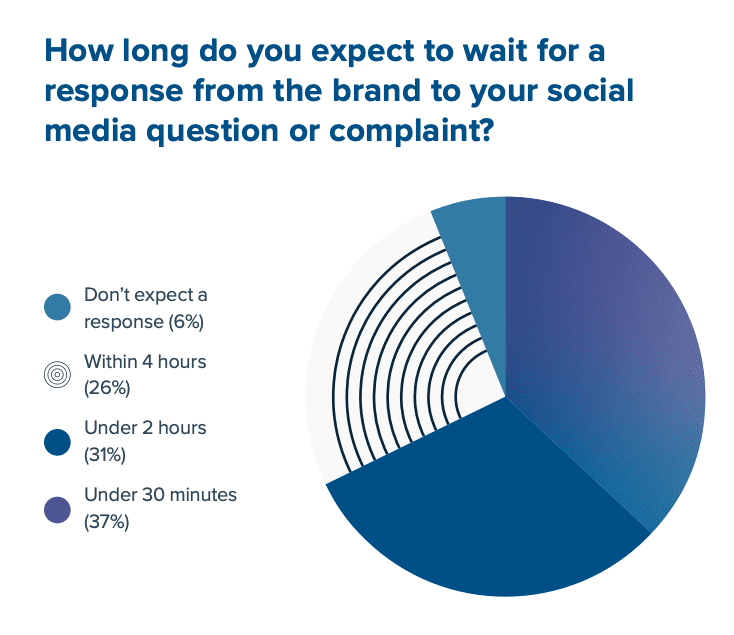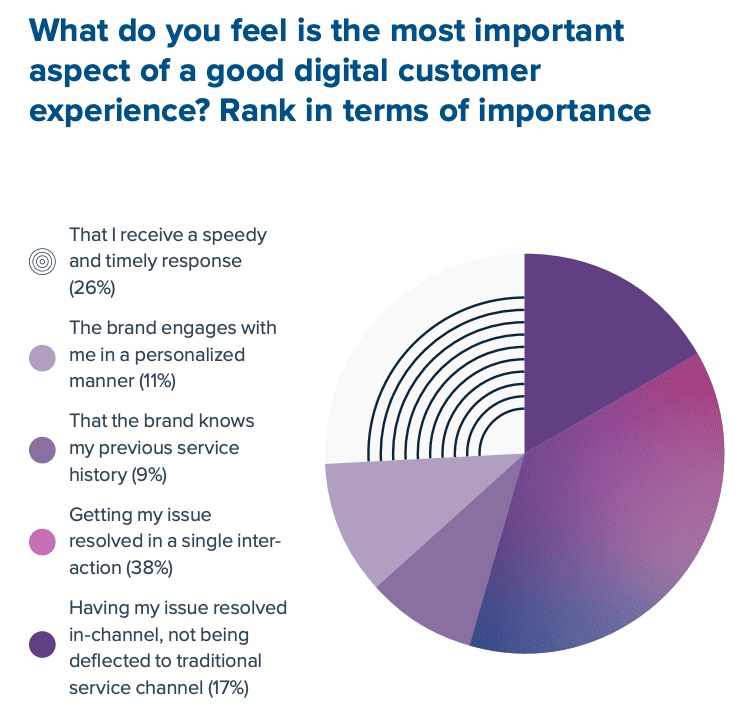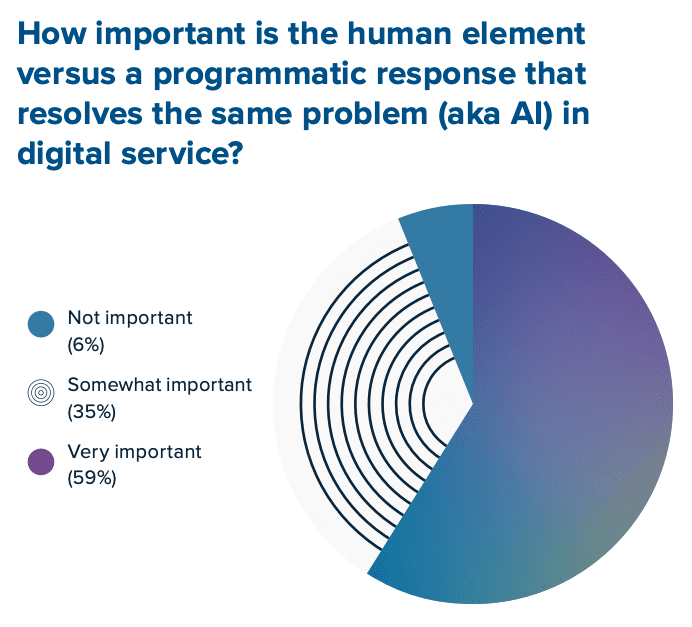Chart of the week: 37% of consumers who use social media to complain or question brands expect to get a response in under 30 minutes
Delivering great customer service is getting more and more difficult for brands, as customer expectations change. Consumers now want instant service that offers fast results, which means brands need to deliver the best possible customer service via their digital channels.
Over a third (37%) of consumers who use social media to complain or question brands expect to get a response in under 30 minutes. According to Conversocial’s report ‘The State of Digital Care in 2018’, people want almost instant responses to issues they air on a social platform.
The report shows that the majority of respondents expect a response the same day via social media, with 31% wanting one in under two hours and 26% expecting to hear back in under four hours. In fact, only 6% don’t ever expect to get a response to a complaint made on social media.

Increased connectivity
It seems that the increase in connectivity due to digital methods and social media has change consumers’ expectations when it comes to customer service. People now want to receive service on terms that suit them, including hearing back from brands.
Failing to meet with these expectations can have dire consequences for brands, with 57% of people saying they have stopped doing business with a brand due to a poor digital customer service experience.
However, the fact that many customers are now prone to seek service via social media also offers a number of benefits to brands. Those businesses that offer great service on these platforms could actually see more people becoming repeat customers.
Over half (51%) of respondents said they were 'very likely' and 41% said they were 'somewhat likely' to become a repeat customer to a brand that answers their question on social media. This shows that social really can’t be ignored when it comes to creating your customer service strategy. But what challenges can you expect to face?
Fast resolutions
One of the biggest challenges for companies when it comes to customer service is dealing with issues quickly and efficiently. In fact, 38% of consumers cited getting their issue resolved in a single interaction as being the most important aspect of a good digital customer experience.
Second to this in terms of importance was getting a speedy and timely response, with 26% choosing this as most important. This suggests that the usual 48 hours for a response from a customer service agent isn’t quite cutting it for consumers, which could be a reason many are now moving to social media to get their queries answered.

Customers also want their issue resolved via the channel they have chosen, rather than being deflected to a more traditional service channel. Some 17% said that this was important to them, suggesting that canned responses directing customers to a contact form, telephone number or email address are not the way for brands to go.
This ties in with the fact that 67% of respondents said that it can typically take some effort to get an issue resolved over digital channels. Keeping things as simple as possible seems to be the best option for those wanting to streamline their customer service processes, as this will reduce customer effort and the speed at which queries are resolved.
Your brand could benefit from having a dedicated social media service team, as well as a team that deals with queries via traditional channels. Alternatively, you could look into the benefits that chat bots offer when it comes to fast and effective customer service, although bots could also result in a few difficulties.
The human element
While bots can be a great way to speed up responses to customer queries on social media, they don’t offer the most human experience, which is still an important point for many consumers.
The vast majority of survey respondents (59%) said that it is “very important” to have a human handle their customer service query, while 35% said that it is “somewhat important”. Only 6% said that it wasn’t important at all.

These findings suggest that most consumers still distrust the ability of bots and AI to provide the right resolution, preferring instead the personalized touch coming from human customer service agents.
However, it is often the case that consumers interact with bots without knowing it. This suggests that the right AI strategy can help your customers feel as though they are talking to a person while also benefitting from the quick resolution offered by chat bots.
When using bots, though, brands need to be aware of the difficulties that can arise in terms of the bot-to-agent handover. While brands shouldn’t seek to hide the fact that customers were initially interacting with a bot, they should make the handover as seamless as possible to create the personalized service consumers are looking for.
Final thoughts
Customer service has always been a vital part of ensuring consumer happiness and creating brand advocates. But in the digital-first world we now live in, changing expectations will create increasing challenges for brands.
Brands need to keep pace with what customers expect from them, especially when you look at the relationship between repeat customers and good digital service. Of course, this means that you need to have a better understanding of exactly what it is your customers want.
Creating customer satisfaction score (CSAT) surveys can help you better understand what your customers like about the service you’re offering and where you can improve. Just as with any other strategy you create, your customer service one should be fluid and reactive in order to ensure you are delivering a seamless experience to your consumers.









